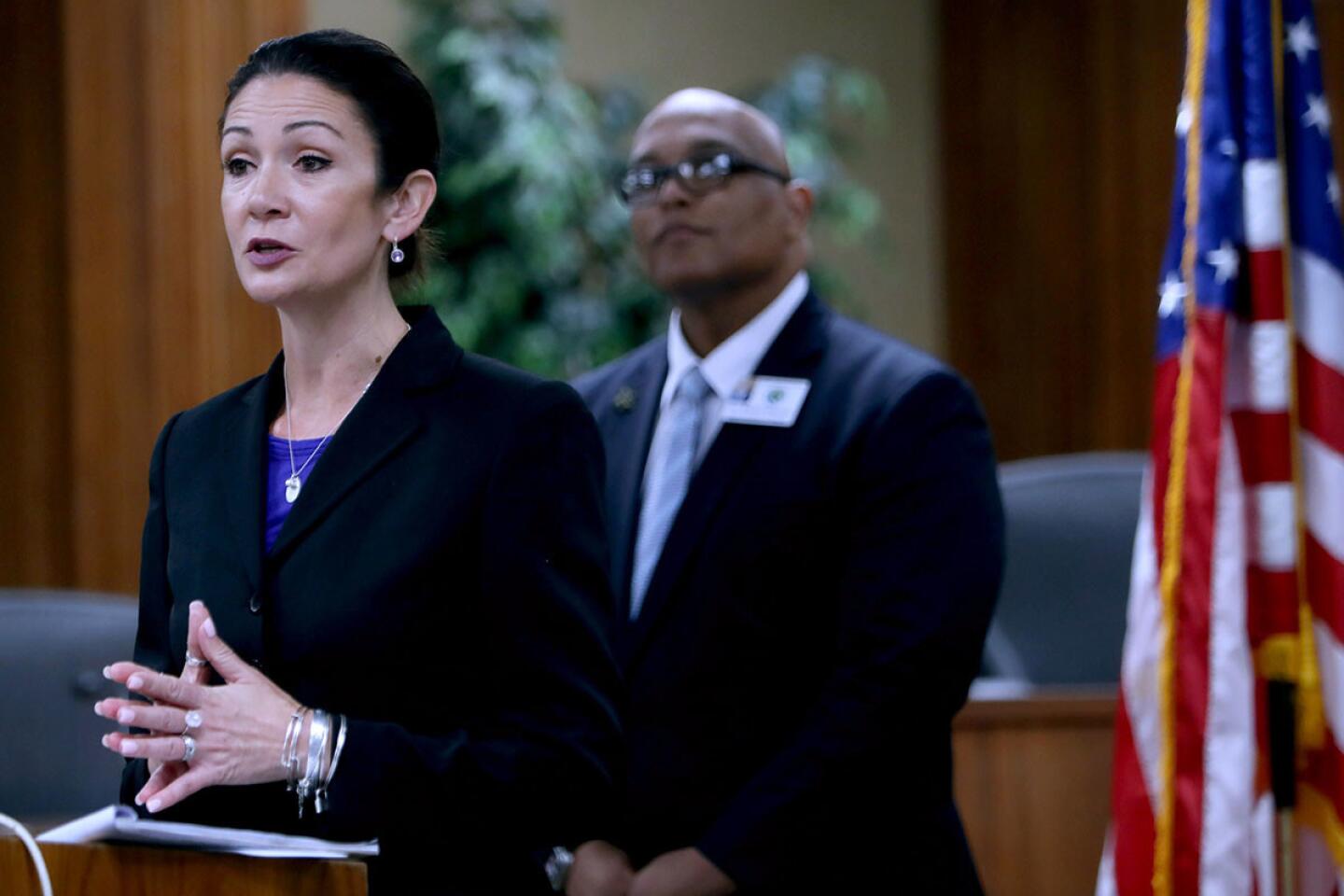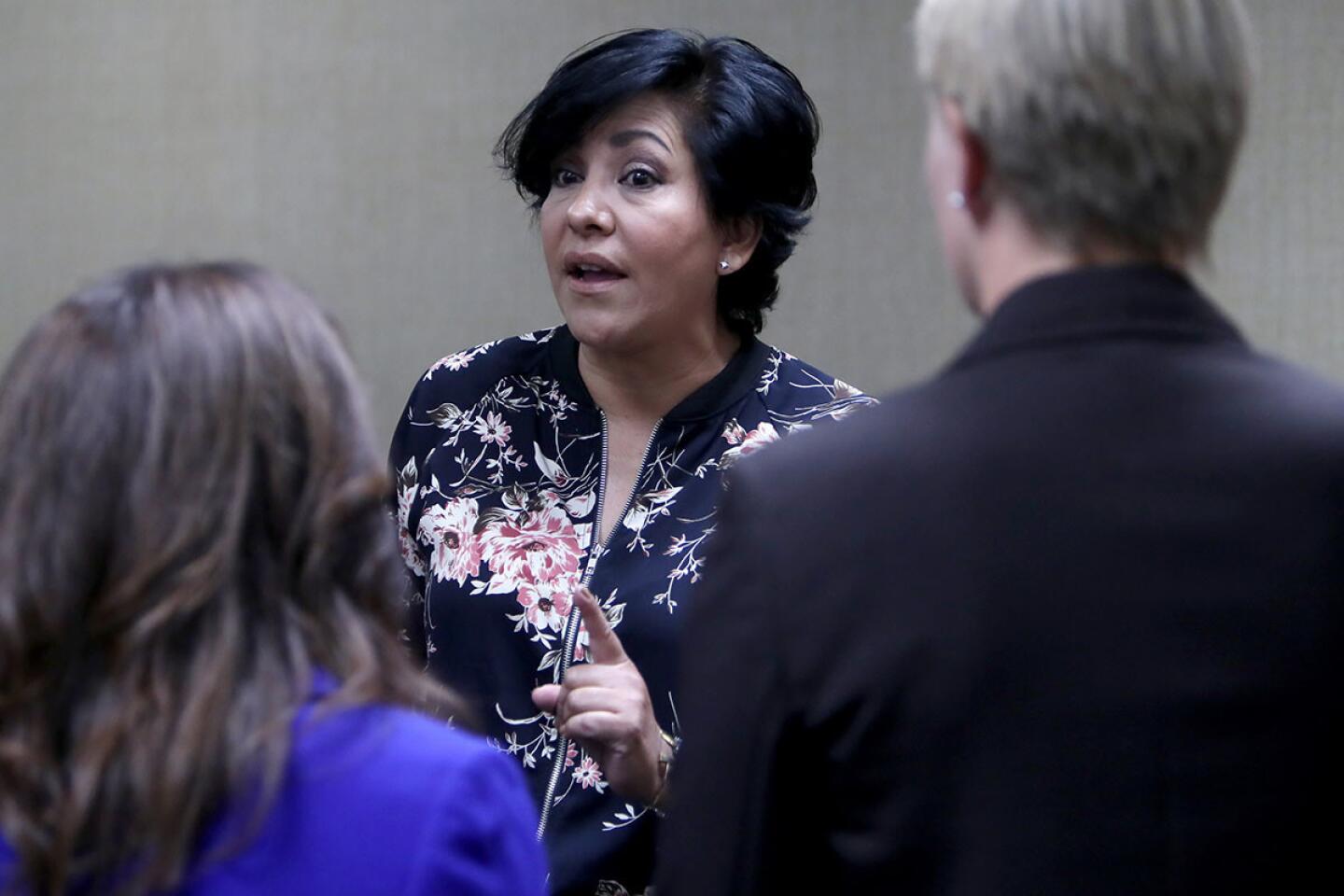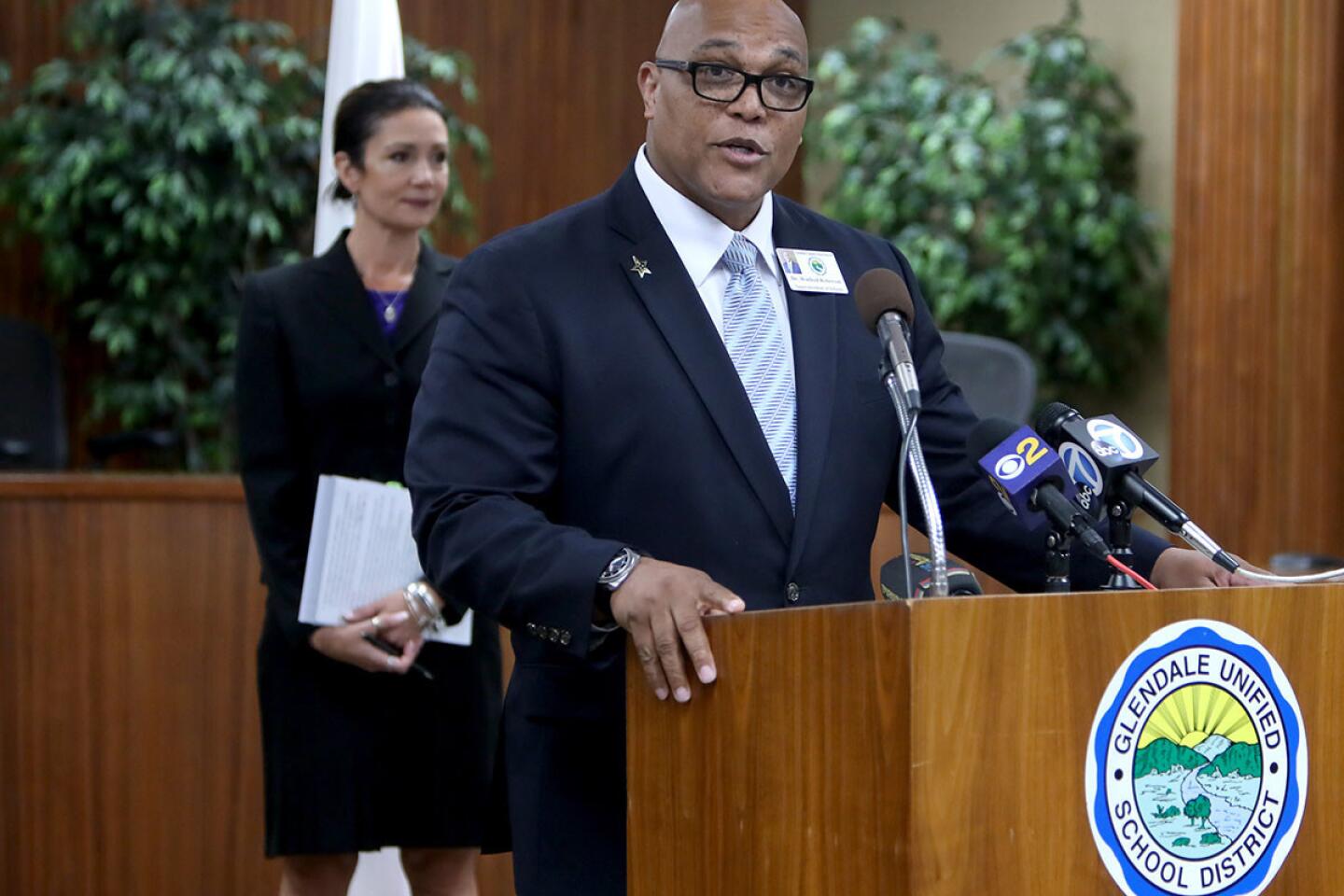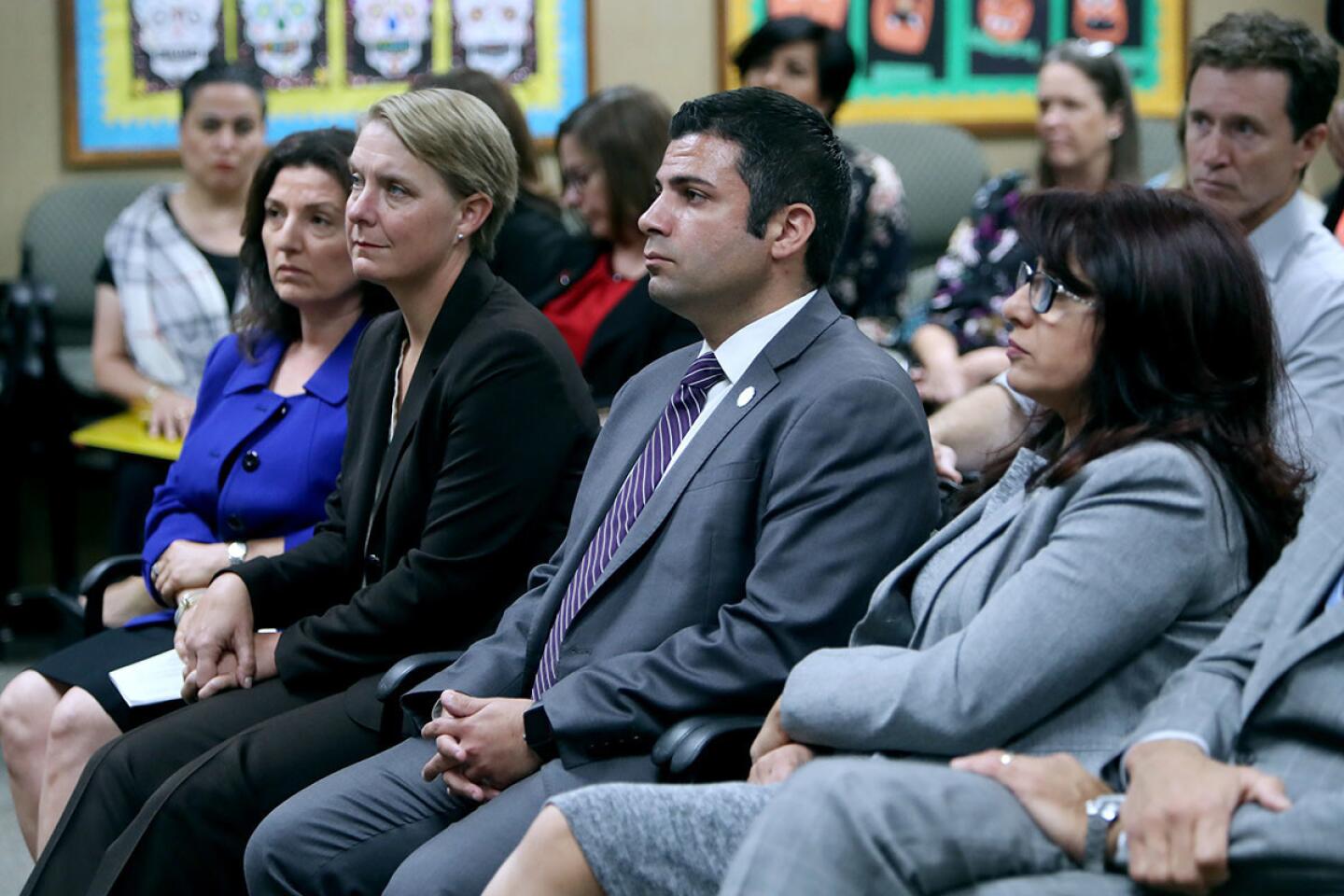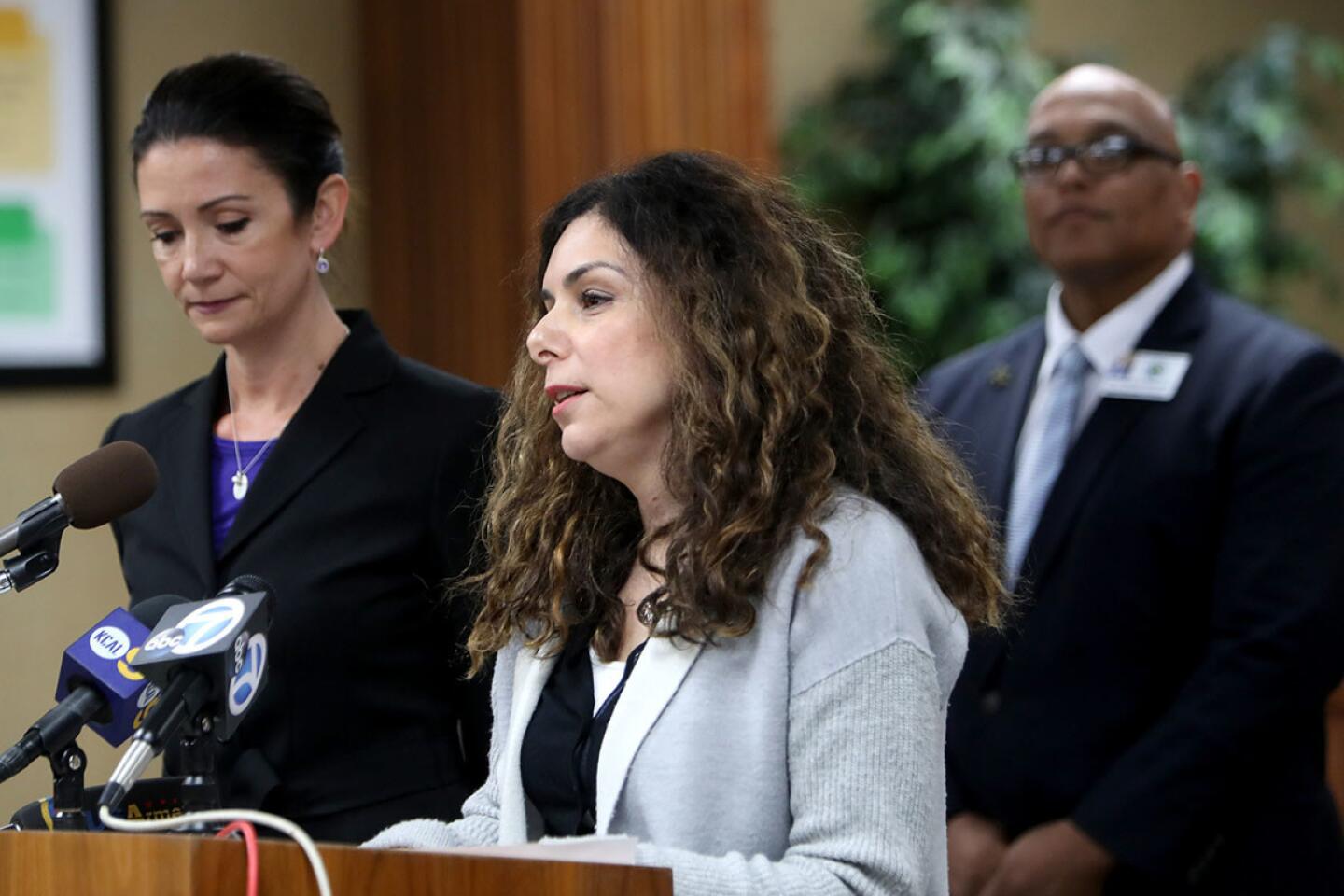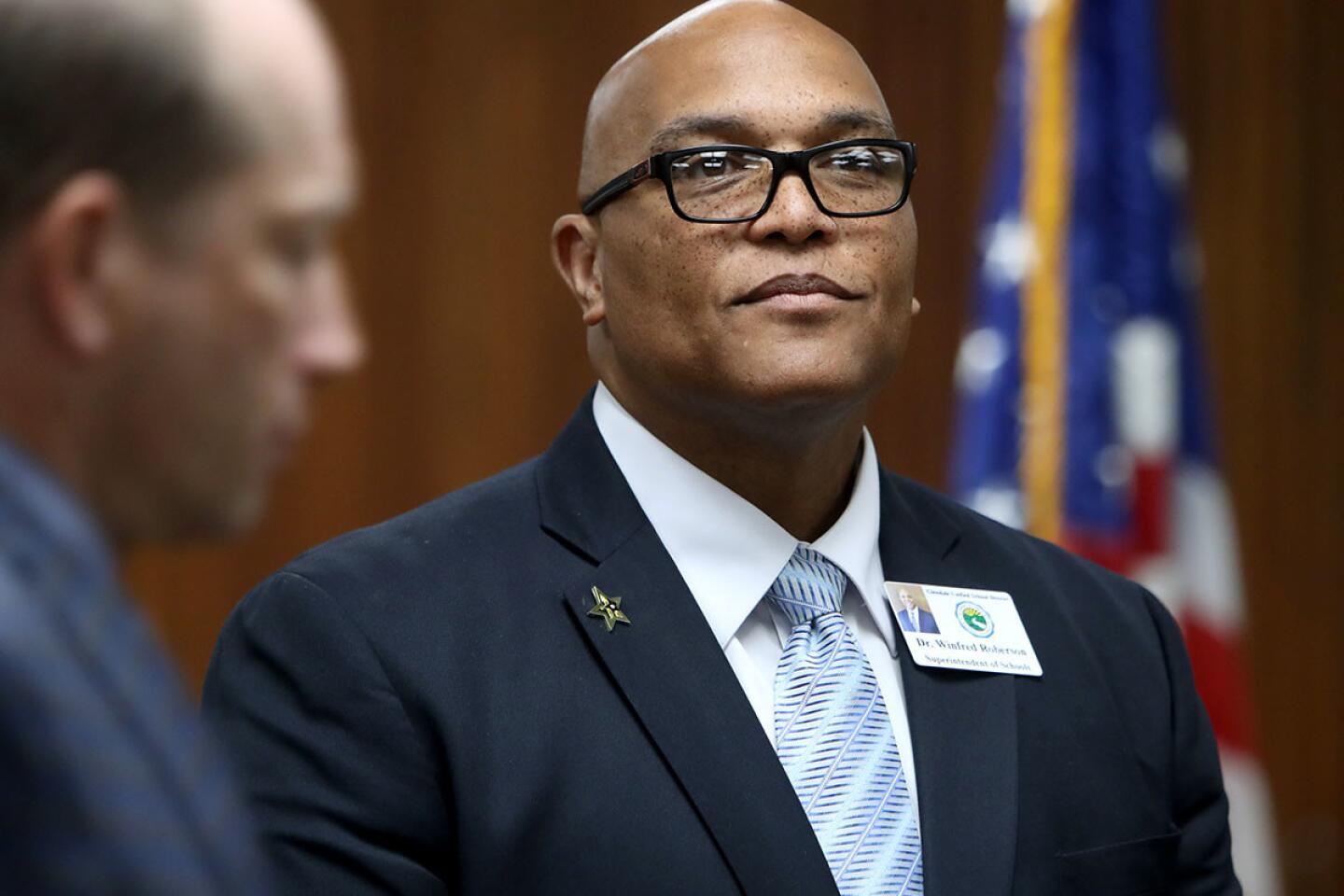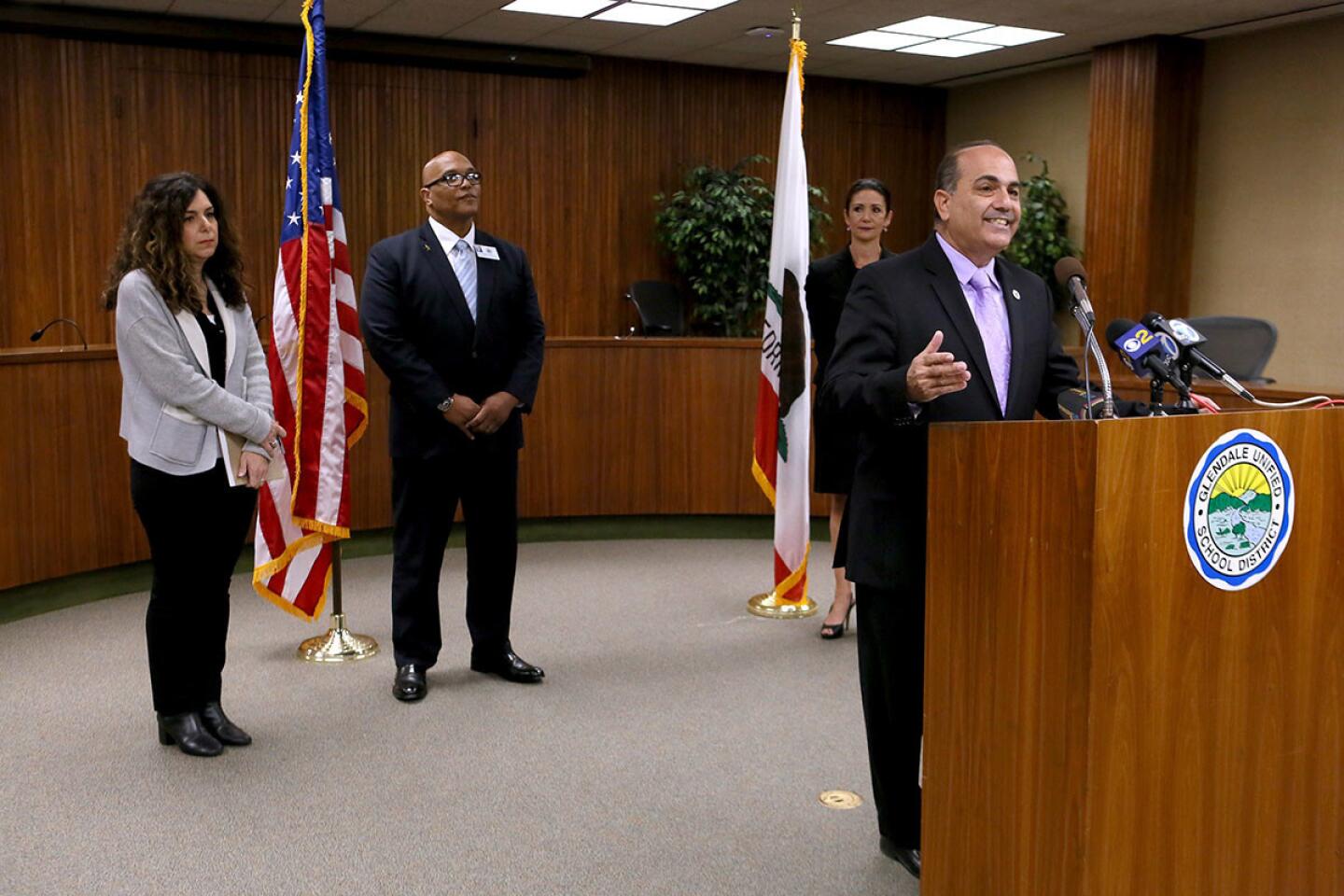Glendale Unified officials say they have answers about Hoover High brawl
Glendale Unified officials are stating that a melee that broke out on the Hoover High campus on Oct. 3 was due to a prior incident and was not fueled by racial tensions or the involvement of a special needs student.
That was the message from Glendale Unified Supt. Winfred B. Roberson Jr. during a press conference at district headquarters Thursday morning.
Roberson was one of three officials, along with school board president Greg Krikorian and Hoover High School principal Jennifer Earl, who spoke. A Hoover High parent also made a statement.
The district held the press conference, in part, according to Krikorian, to “help combat the threat of the lingering disruptions, the rumors and the misinformation that’s been swirling around the schools the past several weeks.”
The consequences from the fracas have led to allegedly more than a dozen student suspensions, the cancellation of four Hoover football games, including the first-ever cancellation of the “Battle for the Victory Bell” rivalry football game and homecoming with Glendale High, and changes to or postponements of homecoming festivities for Crescenta Valley, Glendale and Hoover high schools.
District officials spoke to parents during a Hoover PTA meeting on Oct. 15 and to Hoover students who walked out of school on Monday, while issuing various statements the past four weeks.
The first official press conference was held Thursday.
“Our purpose for coming here today is to build community and to speak to our community, and I want to address three critical questions that have come up again and again,” Roberson said.
Those three questions were: What happened on Oct. 3? Why was the “Victory Bell” game cancelled? How do school officials move Hoover High and the district forward?
Roberson addressed the brawl first.
“According to students who were directly involved, and this came after a thorough investigation by the site administration as well as district administration, there are two primary events leading up to the incident that resulted in frustrations as well as miscommunications,” Roberson said.
He said initially a Hoover student was offended by another student using profanity in front of a female student, which led to a verbal argument.
Roberson continued, saying the following week a rumor started about a Hoover student spitting on a special needs student.
“This rumor was repeatedly proven false by site administration and later by district administration, who spoke directly to the student, to the parents and to the student’s aide,” he said.
The rumor was pushed on social media, which built tensions on campus, Roberson added.
Another argument ensued Oct. 2 regarding the rumor, which led one student to confront another student on Oct. 3.
A fight that initially began between two students turned into a brawl between groups of students on either side of the issue.
Some Hoover students claim the fight was between Armenian students and non-Armenian members of the football team.
Roberson was asked if there was a problem regarding racial division at Hoover and Glendale highs.
That question came about 10 minutes before a Hoover High parent in the audience, who was almost in tears and chose not to give her name, told district board members Jennifer Freemon and Shant Sahakian, who attended the press conference, that her “brown child is constantly harassed.”
The superintendent’s response wasn’t an exact answer to the question.
“The students identified this as ‘miscommunication fueled by a lot of testosterone and misunderstanding,’” he said. “Those same students who were in that fight have come together.”
Krikorian has been outspoken about there never being a special needs student involved, despite some students saying the contrary.
“Let’s be clear here,” he said. “Those students first claimed the [special needs] student was spat on. Then the story changed and kept evolving. We actually talked to the special-ed teacher who said that the student was in the class [during the brawl], and she asserted it did not happen.”
Roberson said the rivalry football game was canceled because of a “growing number of rumored disruptions, divisive behaviors and angry rhetoric that could have incited more violence.”
One rumor that Roberson heard was an alleged protest by some Hoover football players, who had planned to black out the name “Hoover” with duct tape on their jerseys.
“There was a lot of angry rhetoric that gave us concern and that was one of the rumors that we did hear,” he said. “There was no single incident, however, that led to the cancellation.”
When asked why the game was canceled 2½ hours before kickoff rather than a day or week earlier, Roberson took a conciliatory tone.
“Part of it is needing to verify and, as rumors kept coming in, it led to critical points for us,” he said. “We wish we had enough information sooner, and we would have done it sooner.”
As for moving forward, the district wants to foster “communication, not confrontation,” Roberson said.
Students will engage more in restorative circles, which generally asks members involved in a conflict to sit in a circle and hash out problems.
Staff is scheduled to be trained in facilitating restorative circles, while parents are encouraged to join listening sessions with students and teachers.
